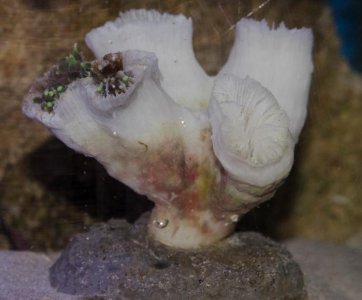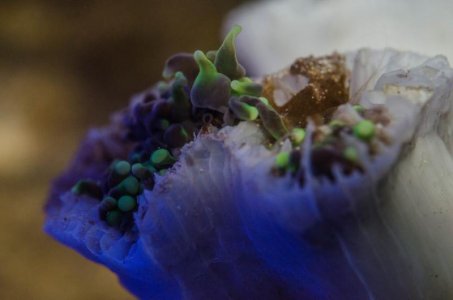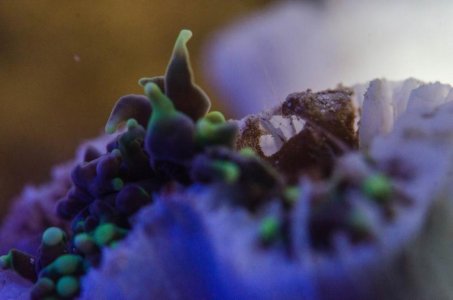Nikky.Werr
New member
All right so I'm at my LFS and in my experience every time they get a coral shipment, if they aren't sold quick enough, they end up dying leaving behind their skeletons. I purchased a few good pieces (a blasto and open brain) but there was a sad looking torch coral with 3 dead heads and one to go. I thought maybe moving it to my established tank would do it some good since I'm assuming all their corals usually die due to water quality issues. I purchased the coral for real cheap (since it was dying anyways), dipped the torch when I got home and put it in my coral quarantine tank. It isn't looking any better than it was at the shop, in fact it may look a little worse. I know it was a goner before I got it but does anyone have any idea what I could do (if anything can be done?) Should I continue to dip it daily in iodine? (i've done two dips so far, had it two days)
I'm not familiar with antibiotic usage with torch corals but I read an article on the use of Cloramphenicol for vibrio infections. Of course I'm not even sure whether it does have a bacterial or fungal infection or if it's just been in bad quality water/lighting for too long.
I know I shouldn't support my LFS keeping their corals wrongly by purchasing the same corals but I've saved other specimens from them before, I just felt I had to do something...
Any opinions are greatly appreciated.
I'm not familiar with antibiotic usage with torch corals but I read an article on the use of Cloramphenicol for vibrio infections. Of course I'm not even sure whether it does have a bacterial or fungal infection or if it's just been in bad quality water/lighting for too long.
I know I shouldn't support my LFS keeping their corals wrongly by purchasing the same corals but I've saved other specimens from them before, I just felt I had to do something...
Any opinions are greatly appreciated.



